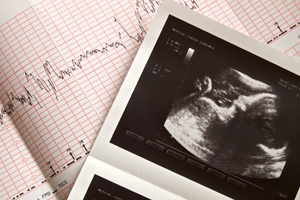The New York Times reported on a recently published study from CLBB affiliated faculty member Dr. Jordan Smoller’s lab, which found observational evidence to suggest that physical activity is related to mental health, regardless of genetic vulnerability. The study was featured prominently in the article:
“So, for the new study, which was published this month in Depression and Anxiety, researchers at Harvard University and other institutions decided to look into those issues. They began by turning to a trove of health data gathered for the ongoing Partners Biobank study. It contains records for thousands of men and women in the greater Boston area who have provided DNA samples and opened their electronic health records to investigators.
The researchers pulled the records of almost 8,000 of these men and women who had filled out a questionnaire about exercise habits. It asked them to recall how much time each week during the past year they had spent in a variety of activities. Those activities included walking, whether for exercise or transportation, running, biking, using exercise machines, or attending dance or yoga classes.
The researchers then examined the men’s and women’s DNA, looking for genetic variations believed to increase the risk for depression, and scored their volunteers as being at high, moderate or low inherited risk for depression.
They also checked each person’s medical records for codes indicating a diagnosis of depression, either before they joined the biobank or for two years afterward.
Then the researchers crosschecked all of this data and soon noted several interesting and consistent patterns. Perhaps least surprising, those men and women harboring a high genetic risk for depression were more likely, in general, to develop depression than volunteers with low risk scores.
At the same time, physically active people had less risk than people who rarely moved, and the type of exercise barely mattered. If someone spent at least three hours a week participating in any activity, whether it was vigorous, such as running, or gentler, like yoga or walking, he or she was less likely to become depressed than sedentary volunteers, and the risk fell another 17 percent with each additional 30 minutes or so of daily activity.
This link between movement and improved mental health held true for people who had experienced depression in the past. If they reported exercising now, their risk for a subsequent episode of depression fell, compared to the risks for inactive people with a history of depression.
Exercise also substantially altered the risk calculus for people whose DNA predisposed them to depression. If they carried multiple worrisome gene snippets but often exercised, they were no more likely to develop depression than inactive people with little genetic risk.
In effect, physical activity “neutralized” much of the added risk for people born with a propensity for depression, says Karmel Choi, a clinical and research fellow at Massachusetts General Hospital and Harvard’s T.H. Chan School of Public Health, who led the new study.
Exercise did not erase the risk of depression for everyone, she continues. Some active people developed depression. But exercise buffered the risks, even for people born with a predilection for the condition.
This kind of observational study cannot show us, though, if being physically active directly causes people to remain mentally healthy, only that exercise and mental health are linked. It also relied on people’s memories of how much they had exercised recently, which can be notoriously unreliable. In addition, it looked at preventing depression, not treating it.
Despite those caveats, the results suggest that “physical activity of many kinds seems to have beneficial effects” for mental health, says Dr. Jordan Smoller, the study’s senior author and a professor of psychiatry at Harvard Medical School.”
Read the full article, “3 Hours of Exercise a Week May Lower Your Depression Risk”, published by the New York Times on November 20, 2019.




